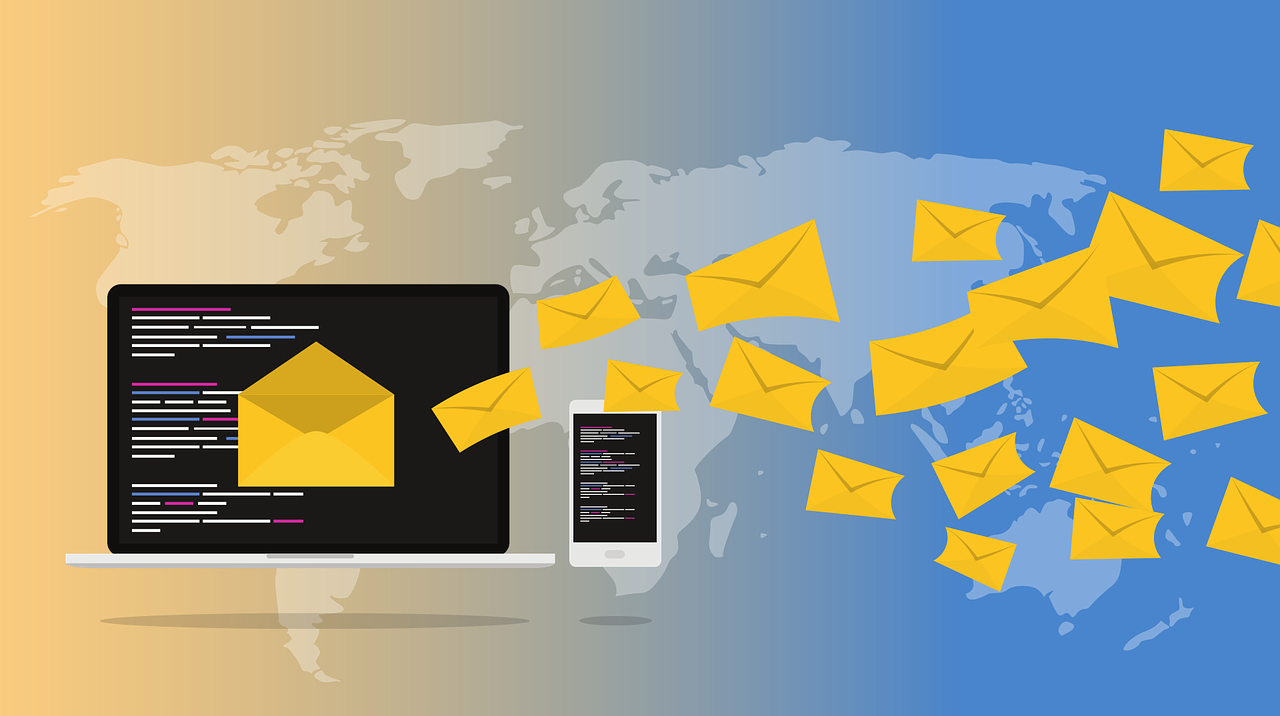AI for Marketing Automation: The Ultimate Guide

In the realm of marketing automation, AI for marketing automation stands as a game-changer. Its integration has revolutionized how marketers engage with their audience, offering unparalleled insights and efficiency. In today's cutthroat market, embracing AI is not just an option; it's a necessity for staying competitive. This blog delves into the significance of AI in modern marketing, exploring its myriad benefits and practical implementation strategies that can propel your marketing efforts to new heights.
Benefits of AI for Marketing Automation

In the realm of marketing automation, AI for marketing automation has become an indispensable tool for modern marketers. The infusion of artificial intelligence into marketing strategies brings forth a plethora of advantages that significantly impact efficiency, personalization, and customer insights.
Enhanced Efficiency
When it comes to the automation of repetitive tasks, AI-powered systems excel in handling mundane activities with precision and speed. By automating these tasks, marketers can allocate their time to more strategic endeavors, enhancing productivity and overall workflow. The streamlined processes facilitated by AI not only save time but also ensure consistency across campaigns.
In the context of streamlined marketing processes, AI plays a pivotal role in optimizing various aspects of marketing operations. From lead generation to campaign management, AI tools streamline workflows by automating intricate processes. This not only reduces manual intervention but also allows marketers to focus on devising creative strategies that resonate with their target audience.
Personalization
1:1 Marketing is elevated to new heights with the integration of AI in marketing automation. Through advanced algorithms and data analytics, marketers can tailor their approach on an individual level, delivering personalized experiences that cater to specific needs and preferences. This level of customization fosters stronger connections with customers, leading to increased engagement and loyalty.
The concept of dynamic content generation is revolutionized by AI technologies that analyze customer behavior and preferences in real-time. By dynamically populating apps, webpages, or emails based on individual attributes and interactions, marketers can create highly relevant content that resonates with their audience. This dynamic approach ensures that each touchpoint is tailored to maximize impact.
Improved Customer Insights
In the realm of data analysis, AI-driven tools provide marketers with actionable insights derived from vast amounts of data. By leveraging predictive analytics algorithms, businesses can anticipate trends, forecast customer behavior, and make informed decisions regarding their marketing strategies. This proactive approach enables marketers to stay ahead of the curve and adapt swiftly to changing market dynamics.
The utilization of predictive analytics empowers marketers to forecast future trends based on historical data patterns. By identifying potential opportunities and risks early on, businesses can fine-tune their strategies for optimal results. Predictive analytics not only enhances decision-making processes but also enables businesses to proactively address customer needs before they arise.
Implementing AI in Marketing Automation
When it comes to implementing AI in marketing automation, marketers are presented with a wealth of opportunities to enhance their strategies and streamline their processes. By leveraging the power of artificial intelligence, businesses can optimize their marketing efforts, improve customer interactions, and drive conversions like never before.
Getting Started
Initial Steps
To kickstart your journey into AI marketing automation, begin by conducting a comprehensive evaluation of your current marketing practices. Identify areas where automation can bring significant benefits and pinpoint tasks that could be optimized through AI technologies. By understanding your specific needs and objectives, you can tailor the implementation process to align with your overarching goals.
Choosing the Right Tools
Selecting the appropriate AI marketing tools is crucial for successful integration into your existing workflows. Look for platforms or applications that offer advanced machine learning capabilities, predictive analytics, and data-driven insights. These tools should not only automate repetitive tasks but also provide actionable recommendations for enhancing customer engagement and driving conversions.
Best Practices
Data Management
Effective data management is at the core of successful AI implementation in marketing automation. Ensure that your data sources are clean, accurate, and up-to-date to derive meaningful insights from AI algorithms. Establish robust data governance protocols to maintain data integrity and security throughout the automation process.
Integration with Existing Systems
Seamless integration with existing systems is essential for maximizing the impact of AI on your marketing operations. Whether you're incorporating AI into your CRM platform or email marketing software, ensure that these systems work cohesively to deliver a unified customer experience. By integrating AI tools with your existing infrastructure, you can leverage valuable customer data across multiple touchpoints for personalized interactions.
Challenges
Common Obstacles
While the benefits of AI marketing automation are vast, businesses may encounter certain challenges during the implementation phase. Common obstacles include resistance to change, lack of internal expertise, and concerns about data privacy. Addressing these challenges proactively through training programs, stakeholder engagement, and robust cybersecurity measures can pave the way for the successful adoption of AI technologies.
Solutions and Tips
Overcoming challenges in implementing AI requires a strategic approach focused on education, collaboration, and innovation. Invest in training programs to upskill your team on AI technologies and their applications in marketing automation. Foster a culture of experimentation and continuous learning to adapt to evolving market trends and consumer preferences effectively.
Impact on Customer Service
In the realm of AI-powered marketing, the impact on customer service is profound. Leveraging artificial intelligence technologies enhances customer interactions, leading to personalized responses and faster resolution times. These advancements not only streamline operations but also elevate the overall customer experience, fostering stronger connections between businesses and their clientele.
AI-Powered Customer Interactions
When it comes to chatbots, businesses are revolutionizing how they engage with customers. By implementing AI-driven chatbots, companies can provide instant support and information to users round the clock. These virtual assistants simulate human conversations, offering real-time solutions to customer queries and concerns. Through this technology, businesses can enhance their responsiveness and ensure a seamless customer service experience.
Enhancing Customer Experience
The integration of AI in marketing automation enables businesses to deliver personalized responses tailored to individual needs. By analyzing customer data and behavior patterns, AI algorithms generate customized messages that resonate with each recipient. This level of personalization fosters deeper connections with customers, driving engagement and loyalty over time.
In terms of faster resolution times, AI-powered systems excel in expediting customer inquiries and issues. By automating response processes and routing queries efficiently, businesses can address customer concerns promptly. This swift resolution not only enhances customer satisfaction but also demonstrates a commitment to delivering exceptional service at every touchpoint.
Case Studies
Success Stories
One notable success story comes from the Testimonial Generation, where AI tools have transformed the way businesses collect feedback from customers. By automating the testimonial creation process, companies can gather authentic reviews seamlessly. This not only saves time for customers but also provides valuable insights for businesses to improve their products or services continuously.
Lessons Learned
Through these case studies, businesses have learned valuable lessons about the power of AI in enhancing marketing campaigns. The ability to personalize interactions, provide instant support, and streamline processes has redefined how companies approach customer service. By embracing AI technologies, organizations can adapt to evolving consumer demands and create meaningful experiences that drive long-term loyalty.
Future of AI in Marketing Automation

Emerging Trends
Artificial intelligence (AI) continues to drive Marketing Automation Trends with innovative solutions that reshape how businesses engage with their audience. By harnessing the power of AI-driven analytics, marketers can gain profound insights into customer behavior and campaign performance. These insights enable precise predictions of trends, allowing businesses to adapt their strategies proactively. The evolution of AI analytics has revolutionized how companies measure success, uncovering valuable patterns that human analysts might overlook. Marketers are increasingly relying on AI-powered tools to enhance customer engagement and loyalty through data-driven decision-making processes.
AI can process massive amounts of data and turn them into insights that fuel your strategies. Marketers can leverage AI for precise predictions on campaign performance and customer trends. By automating routine tasks, AI allows marketers to focus on more strategic and creative aspects of their jobs, fostering a collaborative dynamic between humans and AI. AI-driven marketing solutions offer numerous potential benefits that can revolutionize an organization's relationship with its audience. AI's capabilities can dramatically redefine the customer journey while maximizing return on investment (ROI).
See Also
Top AI Marketing Tools for eCommerce Brands in 2024
Boost Marketing Using AI Tools: 10 Effective Ways
The Ultimate Guide to Generating Ecommerce Sales with 5 SEO Strategies
Leveraging AI for Increased Sales & Conversion: QuickCEP Marketing Tips


